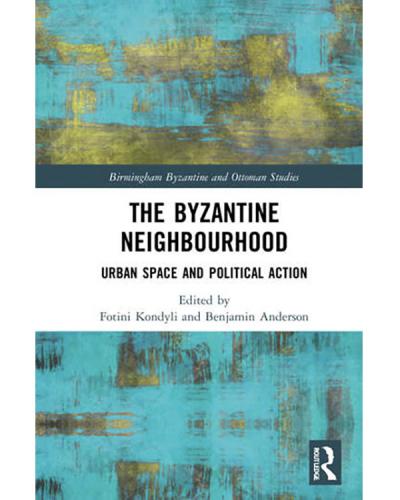 Department Homepage
The College of Arts & Sciences
Department Homepage
The College of Arts & Sciences

The Byzantine Neighbourhood
Title:
The Byzantine Neighbourhood: Urban Space and Political Action
Author/Editor:
Edited by Ftini Kondyli, Benjamin Anderson
Publisher:
Routledge
Year:
2022
The Byzantine Neighbourhood contributes to a new narrative regarding Byzantine cities through the adoption of a neighbourhood perspective. It offers a multi-disciplinary investigation of the spatial and social practices that produced Byzantine concepts of neighbourhood and afforded dynamic interactions between different actors, elite and non-elite. Authors further consider neighbourhoods as political entities, examining how varieties of collectivity formed in Byzantine neighbourhoods translated into political action. By both acknowledging the unique position of Constantinople, and giving serious attention to the varieties of provincial experience, the contributors consider regional factors (social, economic, and political) that formed the ties of local communities to the state and illuminate the mechanisms of empire. Beyond its Byzantine focus, this volume contributes to broader discussions of premodern urbanism by drawing attention to the spatial dimension of social life and highlighting the involvement of multiple agents in city-making.
Table of Contents
Introduction: A Neighborhood Perspective on Byzantine Cities
Benjamin Anderson and Fotini Kondyli
Part I: Defining Byzantine Neighborhoods
1. The View from Byzantine Texts
Albrecht Berger
2. The View from Byzantine Archaeology
Fotini Kondyli
Part II: Byzantine Neighborhoods as Social Spaces
3. Who is the Person Living Next Door? Neighborly Relations in Early Byzantine Assos
Beate Böhlendorf-Arslan